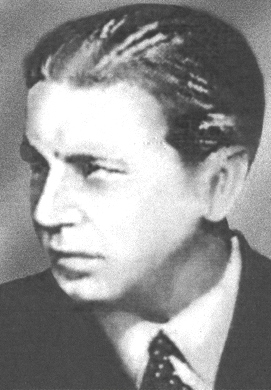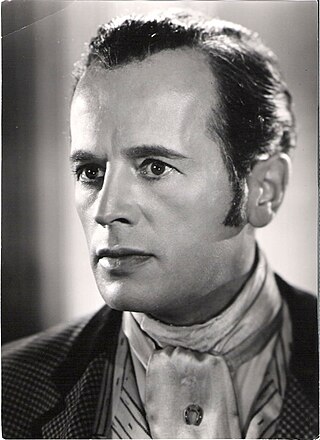Plot
Martin Count von Guldenburg, head of an old aristocratic and seemingly wealthy dynasty known for its brewery, celebrates his 60th birthday on the family's estate north of Hamburg.
Shortly after, he dies in a car accident however, leaving behind his wife Christine with huge debts and the bitter realization that he had betrayed her with his Italian mistress Carina di Angeli for years. That relationship even produced an illegitimate son.
While Christine tries to save the family empire, she not only has to fight its worst enemies, the Balbecks, a nouveau riche clan owning a big brewery in Hamburg, but also her stubborn mother-in-law Hertha, the dowager countess; her estranged stepson Thomas; and Achim Lauritzen, her dysfunctional stepdaughter Evelyn's shady husband.

Bertha Sophie Felicitas Freifrau von Suttner was an Austrian-Bohemian pacifist and novelist. In 1905, she became the second female Nobel laureate, the first woman to be awarded the Nobel Peace Prize, and the first Austrian laureate.

Freiburg im Breisgau (German: [ˈfʁaɪbʊʁk ʔɪm ˈbʁaɪsɡaʊ], usually called simply Freiburg, is an independent city in the state of Baden-Württemberg in Germany. With a population of about 231,848, it is the fourth-largest city in that state after Stuttgart, Mannheim and Karlsruhe. Its built-up area has a population of about 355,000 while the greater Freiburg metropolitan area has about 660,000.

Victoria, Princess Royal was German Empress and Queen of Prussia as the wife of German Emperor Frederick III. She was the eldest child of Queen Victoria of the United Kingdom and Prince Albert of Saxe-Coburg and Gotha, and was created Princess Royal in 1841. As the eldest child of Queen Victoria, she was briefly her heir, until the birth of her younger brother and future King, Edward VII. She was the mother of Wilhelm II, German Emperor.

The Jauch family of Germany is a Hanseatic family which can be traced back till the Late Middle Ages. At the end of the 17th century the family showed up in the Free Imperial and Hanseatic City of Hamburg. The members of the family acted as long-distance merchants. They became hereditary grand burghers of Hamburg and were Lords of Wellingsbüttel Manor – nowadays a quarter of Hamburg.

Brigitte Horney was a German theatre and film actress. Best remembered was her role as Empress Katherine the Great in the 1943 version of the UFA film version of Baron Münchhausen, directed by Josef von Báky, with Hans Albers in the title role.

Caroline Matilda of Great Britain was Queen of Denmark and Norway from 1766 to 1772 by marriage to King Christian VII.

Rudolf "Dolf" von Scheliha was a German aristocrat, cavalry officer and diplomat who became a resistance fighter and anti-Nazi who was linked to the Red Orchestra. Von Scheliha fought in the World War I and this experience defined his politics. He joined the Foreign Office, trained to be a diplomat and was sent to the embassy in Warsaw. In the years leading up to the war, Von Scheliha was placed in a position of trust in the Foreign Office. In 1934, he was recruited by Soviet intelligence while he served in Warsaw due to financial necessity, which enabled him to pass documents to Soviet intelligence. In the years leading up to the war, he became a committed opponent of the Nazi Regime and its anti-semitic policies.

Maria Christina, Duchess of Teschen, was the fifth child of Maria Theresa of Austria and Francis I, Holy Roman Emperor. Married in 1766 to Prince Albert of Saxony, the couple received the Duchy of Teschen, and she was appointed Governor of the Austrian Netherlands jointly with her husband during 1781–1789 and 1791–1792. After two expulsions from the Netherlands, she lived with her husband in Vienna until her death.

The Gottfried Wilhelm Leibniz Prize, in short Leibniz Prize, is awarded by the German Research Foundation to "exceptional scientists and academics for their outstanding achievements in the field of research". Since 1986, up to ten prizes are awarded annually to individuals or research groups working at a research institution in Germany or at a German research institution abroad. It is considered the most important research award in Germany.

The House of Bismarck is a German noble family that rose to prominence in the 19th century, largely through the achievements of the statesman Otto von Bismarck. He was granted a hereditary comital title in 1865, the hereditary title of Prince of Bismarck in 1871, and the non-hereditary title of Duke of Lauenburg in 1890. Several of Otto von Bismarck's descendants, notably his elder son Herbert, Prince of Bismarck, have also been politicians.

The wedding of Victoria, Crown Princess of Sweden, and Daniel Westling took place on 19 June 2010 in Stockholm Cathedral. It has been described as "Europe's biggest royal wedding since the Prince of Wales married Lady Diana Spencer in 1981." Westling thereby acquired Victoria's ducal title, becoming a Swedish prince and Duke of Västergötland. In time for the wedding, a joint monogram of their initials was created.

Teufels Großmutter is a twelve-part German/Swiss comedy television series which ran for one season in 1985 and 1986. Co-produced by SF DRS in Switzerland and ZDF in Germany, it was scripted by Justus Pfaue and directed by Rob Herzet, premiered in August 1985 on DRS and was subsequently broadcast on ORF and in 1986 on ZDF.

Malte Richard Friedrich Jaeger was a German actor, theater director and voice actor.

Falk Harnack was a German director and screenwriter. During Germany's Nazi era, he was also active with the German Resistance and toward the end of World War II, the partisans in Greece. Harnack was from a family of scholars, artists and scientists, several of whom were active in the anti-Nazi Resistance and paid with their lives.

Friedrich Wilhelm Quirin von Forcade de Biaix, baptized Quirin Frideric de Forcade, aka Friedrich Quirin von Forcade, aka Frédéric Quérin de Forcade was a Royal Prussian Lieutenant General, the second son of Jean de Forcade de Biaix, an early Huguenot immigrant to Brandenburg-Prussia and a descendant of the noble family of Forcade. He was one of Frederick the Great's most active and most treasured officers. He was wounded three times and once left for dead on the battlefield. Together with his wife, he fathered 23 children.

Martin Luserke was a progressive pedagogue, a bard, writer and theatre maker. He was one of the leading figures of German progressive education and a precursor of outdoor education. As his distinguished achievement counts the integration of community theatre into school and youth work. It was also integrated in German Youth Movement.

Benjamin Appl is a German-British lyric baritone, a classical singer who has appeared world-wide in opera houses and concert halls, particularly known as a Lieder singer.
















